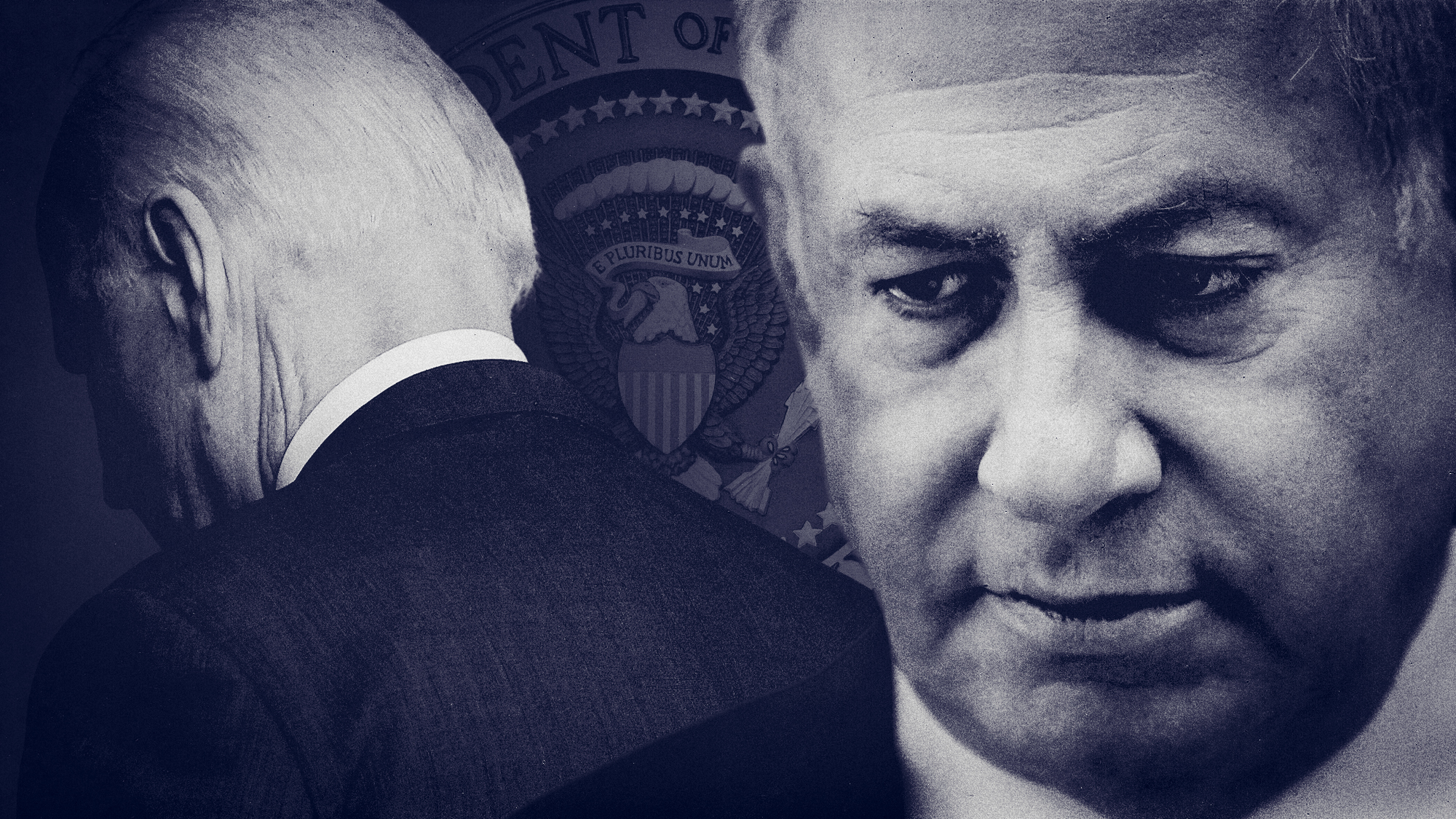Is the Biden-Netanyahu schism here to stay?
As the White House carefully ramps up its criticism of Israel's war with Hamas, can the relationship between these two heads of state be salvaged?


A free daily email with the biggest news stories of the day – and the best features from TheWeek.com
You are now subscribed
Your newsletter sign-up was successful
In October, at the onset of the still-ongoing war between Israel and Hamas across the Gaza Strip, President Joe Biden was unequivocal in his public statements of support for the Israeli offensive. Palestinians were "the other team," he claimed at one point, arguing a few days later that American support for Israel represented an "inflection point in history." As the war dragged on and criticism from within his administration grew, however, Biden's outward stance of uncritical solidarity became tempered by a strain of "more strident" insistence behind the scenes that Israel minimize civilian casualties.
That stridency, previously reserved for diplomatic channels and private conversations between Israeli and American officials, burst into public view this week, with Biden warning during a campaign event that Israel is "starting to lose" international support over the "indiscriminate bombing that takes place" in Gaza. To date, nearly 20,000 people have been killed in the densely populated Gaza Strip since the war began. Speaking at a campaign event on Tuesday, Biden also criticized Israeli Prime Minister Benjamin Netanyahu's political coalition as "the most conservative government in Israel's history," which is "making it very difficult" to achieve peace with the Palestinians. After raising concerns about the bombing of Gaza with Netanyahu, Biden said the Israeli leader responded "well, you carpet-bombed Germany. You dropped the atom bomb. A lot of civilians died.”
For as much as Biden continues to stress that the United States cares deeply for Israel's security, it's clear that the ongoing war in Gaza has strained relations between the two countries. But is this schism temporary, or a permanent rift brewing between these allied nations?
The Week
Escape your echo chamber. Get the facts behind the news, plus analysis from multiple perspectives.

Sign up for The Week's Free Newsletters
From our morning news briefing to a weekly Good News Newsletter, get the best of The Week delivered directly to your inbox.
From our morning news briefing to a weekly Good News Newsletter, get the best of The Week delivered directly to your inbox.
What the commentators said
Biden's comments were "frank, and searing," Puck's Julia Ioffe wrote. People associated with the administration describe a "growing frustration with Netanyahu and how the Israeli government is continuing to wage this war," she added, noting a wish for Netanyahu's government to be "more responsive to the administration’s asks" and acknowledge the "growing recognition" that "dismantling [Hamas] completely is not possible."
While Biden has used "similar language to criticize Netanyahu’s hardline government before," these latest comments come as US officials believe the Israeli leader is operating in a "campaign mode" more receptive to political calculations than genuine security concerns, according to Semafor, which cited additional reporting from the Times of Israel. As Ioffe pointed out, Netanyahu's claim that "we received full backing for the ground incursion and blocking the international pressure to stop the war" from the U.S., the Israeli Prime Minister was essentially trying to "hang the war [...] squarely around Biden's neck" — a "hell of a thing to do to Biden" as the 2024 election heats up.
Domestically, efforts to condition U.S. aid to Israel are "significant, even though they're unlikely to be realized," Jerusalem Post columnist Douglas Bloomfield wrote, cautioning that "it would be wrong for Prime Minister Benjamin Netanyahu and his government to interpret" any failure to condition aid as an "endorsement." In Washington, Netanyahu's "stock is down and failing" even as he seems "more afraid that his political partners will abandon him than would his strategic partner, the United States."
What next?
Biden and his team have "changed their rhetoric but not their policy," national security analyst Joe Cirincione told The Guardian. Speaking with MSNBC, longtime Middle East expert and peace negotiator Aaron David Miller predicted "tougher times are coming" for the U.S.-Israel relationship, which is operating like "two clocks and they're ticking at different speeds."
A free daily email with the biggest news stories of the day – and the best features from TheWeek.com
National Security Adviser Jake Sullivan is scheduled to arrive in Israel on Thursday to discuss, among other things, a "timetable" for the ongoing Israeli offensive, reflecting the fact that the Biden administration has been shown "pessimistic assessments" showing Netanyahu is "interested in endlessly prolonging the war to delay" what is widely expected to be a political crisis once the fighting is over, according to Ha'aretz.
Throughout it all, Biden has gone out of his way to stress his support for Israel's security and position as a Jewish ethno-state, a sign of his "deep conviction that no daylight should appear in the longstanding ties between the U.S. and Israel," The Guardian reported. Ultimately, however, he may "find his hand forced" not only by Netanyahu's obstinance, but by "domestic politics and alarming poll numbers" here at home.
Rafi Schwartz has worked as a politics writer at The Week since 2022, where he covers elections, Congress and the White House. He was previously a contributing writer with Mic focusing largely on politics, a senior writer with Splinter News, a staff writer for Fusion's news lab, and the managing editor of Heeb Magazine, a Jewish life and culture publication. Rafi's work has appeared in Rolling Stone, GOOD and The Forward, among others.
